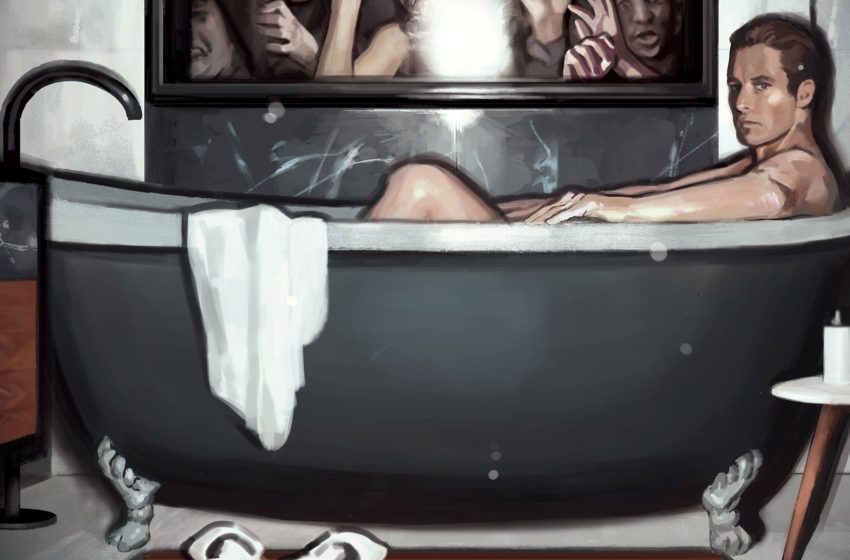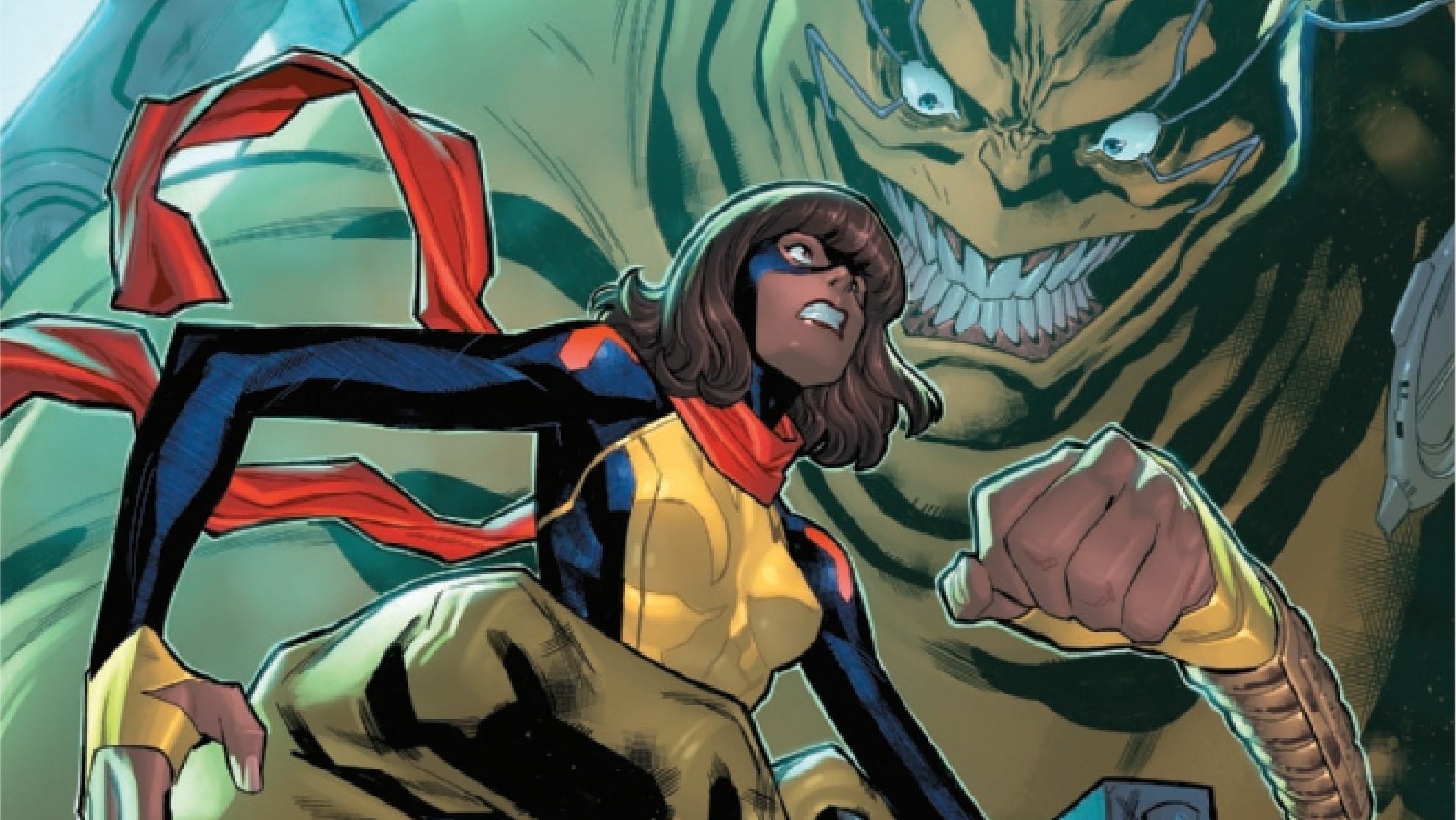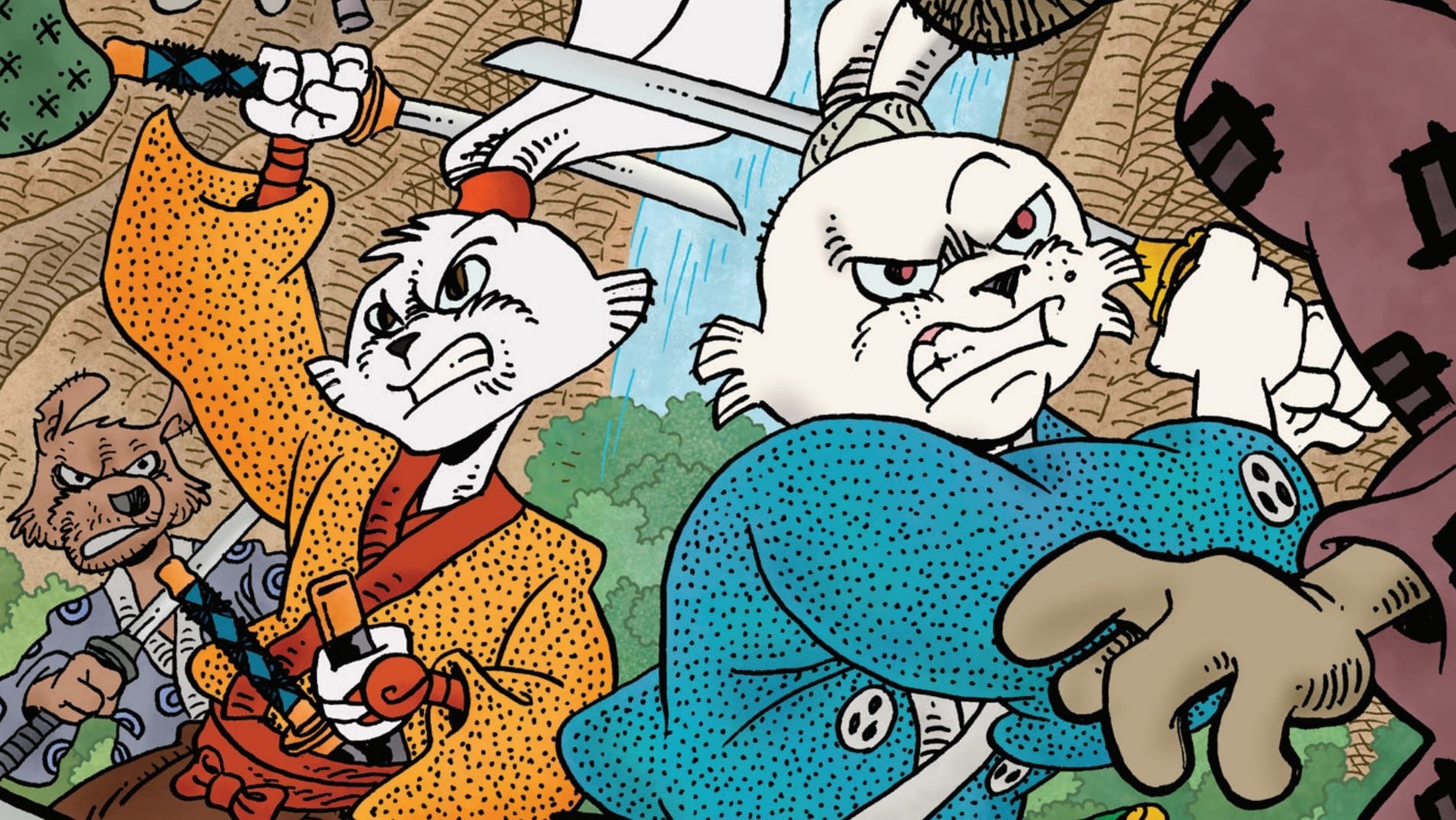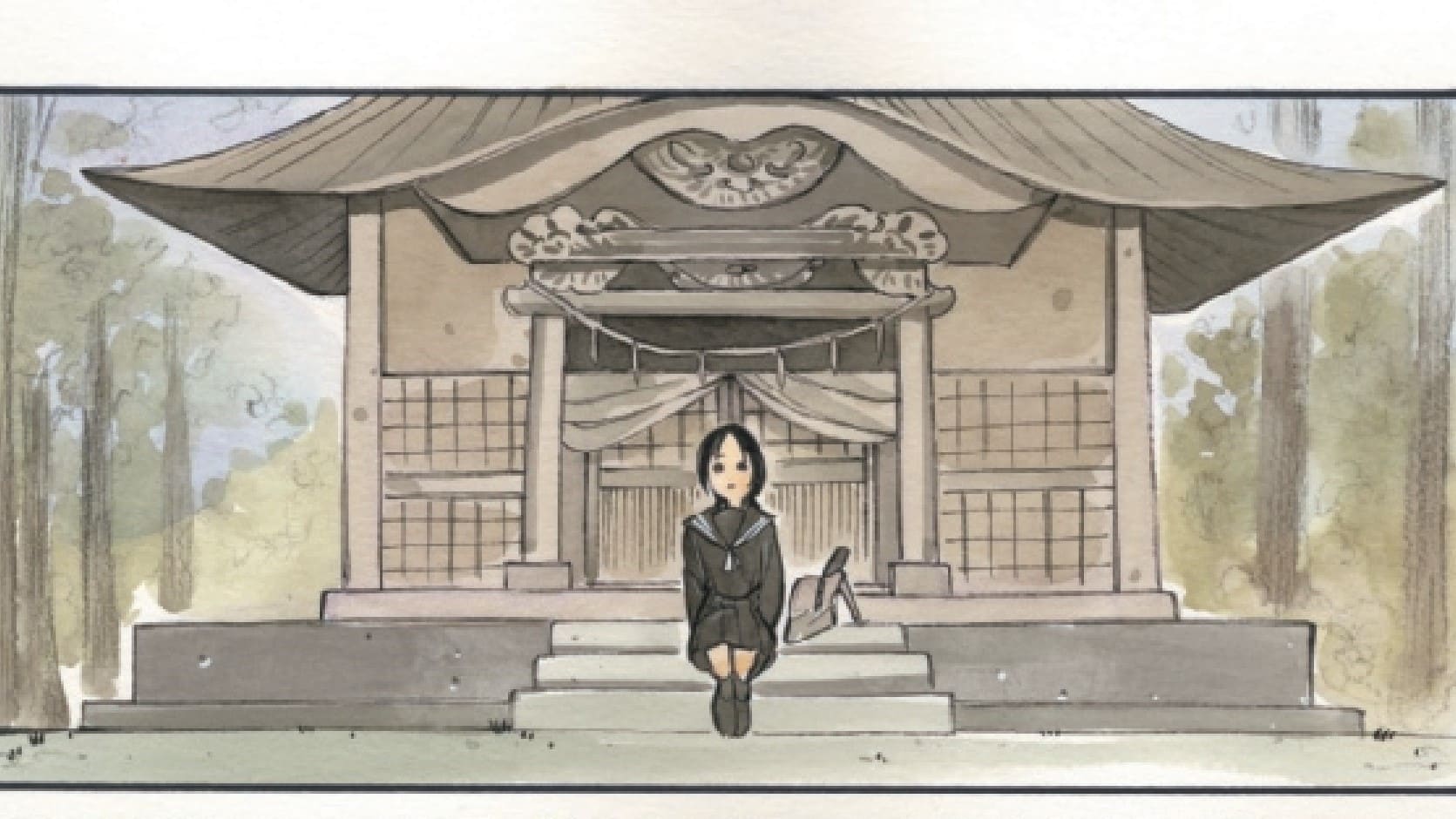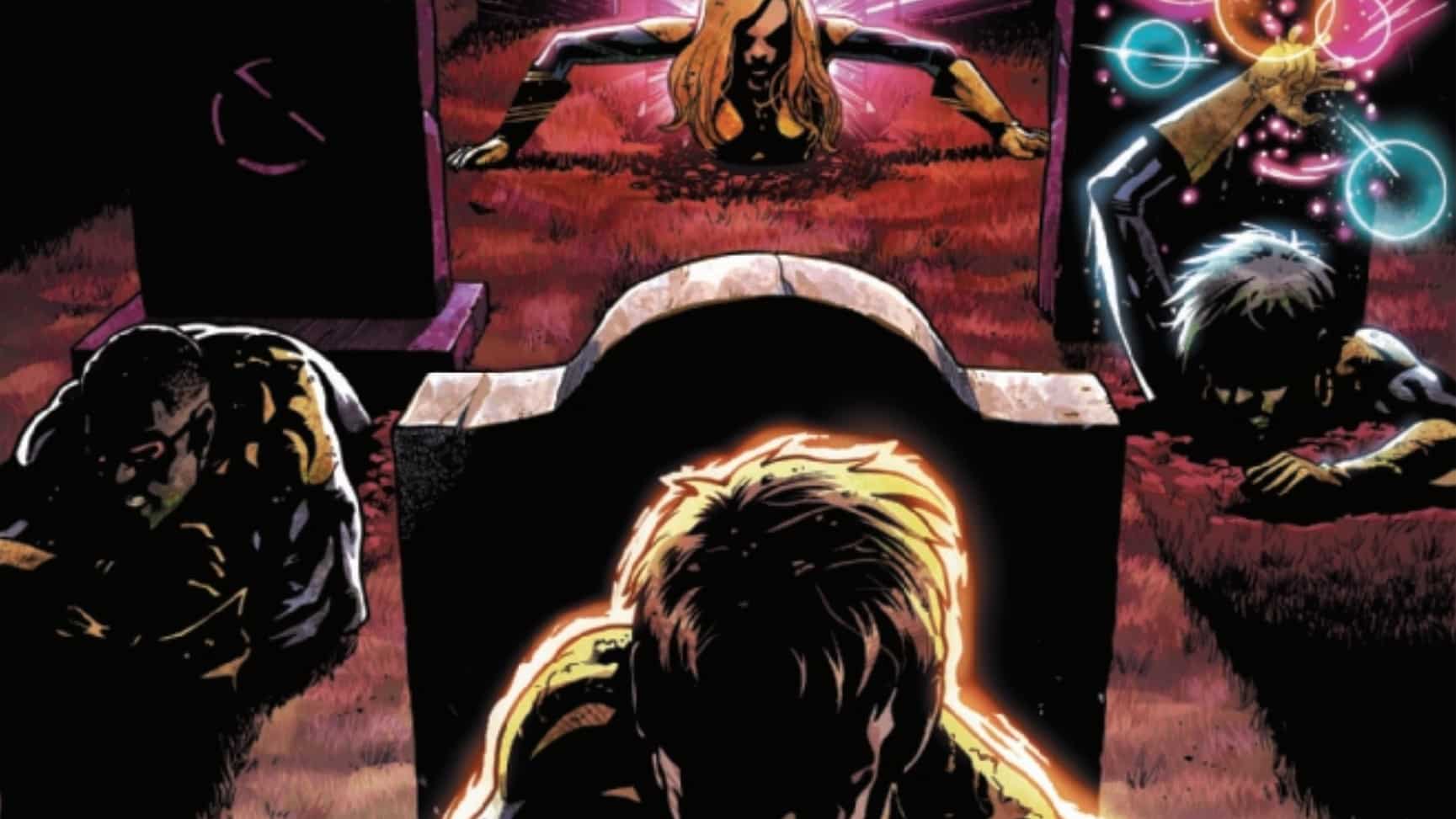The weather’s great, the woods are quiet and the home theater has whatever blockbuster you’d care to see. But the world’s on fire and all your friends at home are dead. Still, try to relax in The Nice House on the Lake #2, written by James Tynion IV, drawn by Alvaro Martinez Bueno, colored by Jordie Bellaire and lettered by AndWorld Design.
Will “The Professor” Nevin: Let me ask you this: If it’s truly the end of the world, and you’re stuck facing it with some friends, a few frenemies and even a couple of acquaintances who are more like total ass strangers in a utopian plot created for you by your former best dude who you’re now pretty sure is some kind of alien, how do you think you’d handle it? Rage against the dying of the light? Take a boat out on the lake and never come back? Pretend nothing’s wrong? What’s the plan?
Forrest “The Advisor” Hollingsworth: It’s convenient that we’ve established that Walter keeps the house well stocked because ya boy is gonna do some serious binge eating. Maybe even a little cooking. Do you think Walter has cast irons?
The Professor: As a sad boy in college who grew up and got some money, he absolutely has cast irons. After reading Nice House #2 and thinking it over, the one thing that resonates with me is how relatable this all is. The first issue was about blowing the doors off this world, drenching the readers in all sorts of unbelievable horrors. But while that is still there in moments, this sophomore read seemed like a study in how we all cope with loss and tragedy. It was a different sort of read, but I liked it.
The Advisor: I’m a little more conflicted than you, to be honest. Let’s get into it!
WWWWUTD?

The Professor: I’ll confess something here: I’m terrible at keeping characters straight in ensemble books. I know the first issue spotlighted The Writer — who exactly do we have here?
The Advisor: I’m glad you said that! I actually wished the issue had taken the concession of a recap page or legend because I cannot keep the names, let alone professions, of all of these characters straight. I understand that’s DC’s established format, and I won’t harp on it much beyond this, but I think sometimes a creative team is so close to or familiar with the content that they miss those necessary structural steps, and I would gladly challenge the editors to make it a little more coherent in the future if that’s the case. Admittedly, we are late to discussing this, but between my own failings and how infrequently the book is published, you could call me The Interrogator given how much cross-examination I had to do between this and the first issue.
In any event, this issue is all about The Pianist, Rick MacEwan, whom we distinctly did not learn much about before this.
The Professor: I think we could also go with The Details Person, but, yeah, Rick opens #2 basically mourning the person he knew to be Walter, his loving (maybe overly affectionate) friend who is, of course, in reality some scary sort of motherfucker we still don’t know much about. But ol’ Walt is still very much a character in this issue, either in the flashback (which was another two-page spread done incredibly well), a ghostly sort of apparition or simply a presence that hangs over the house and appears to set us up for a main conflict among the housemates — one that pits those who want to follow Walter’s schedule against those who can’t quite handle a fun movie night while the world burns and all that skin melts away like so much cheap candle wax.
To me, the central issue in this story right now is, “What would Walter want us to do?” And like anyone coping with the loss of a loved one, the way you answer that question says more about your perceptions rather than what the person would have actually wanted. Then again, I guess Walter did leave a schedule, and he seems to be able to pop in whenever he wants. Forrest, what did you think about this point?
The Advisor: I like it! To your point, I think Walter is actually the most realized character yet. We touched on the idea of individual coping above, but I think it’s even more relevant with regard to how the cast interacts with their host.
Some people by desire or by necessity defer to authority, and Walter, despite his grotesque appearance, is that — you can put Rick in the present, not the flash-forward in that camp. Walter has what appears to be a complete, cold control over the situation, and as we see with both the flashback and with the Pianist’s, uh, temptation throughout the issue that he’s very good at manipulating people as well.
He leaves that marker, the one that allows people to see what their home is like at the end of the world, because he knows with questions lingering about the outside world he’ll never have legitimate leverage over the group that has the opposite impulse. I think his goal might not be to establish deference to himself among the group that wouldn’t recognize him for their myriad reasons, but rather to inspire practicality about their situation.
The guns, cigarettes, comics and movies are carefully placed concessions as well. He’s kind of a literal doomsday prepper. I really like the way it feels like the creative team, through Walter’s obsessive planning, first created the layout of the house and then tailored the story to it rather than vice versa. The callouts to the floorplan do a lot.
The Professor: Kinda nice being an alien who can create whatever he wants, huh?
Check the Transcript

The Professor: We talked about this in the first issue and in our last Department of Truth chat, so I think I’ve learned enough about your takes to guess your position. You didn’t care for the surveillance transcript, right?
The Advisor: You are correct! I will say that, in comparison to my dislike for the Bigfoot letter in the previous Department, that I understand what Tynion is trying to do with Walter being cold and dispassionate, those things playing out while he watches in a sharp contrast to how he lured them all in with his emotional forthrightness and magnanimity earlier in their lives, but I also don’t like not seeing those moments. It’s too early in my opinion to be learning about characters in what feels like an artificial abstract. I need to connect jobs, names and dialogue to each other, and this format just doesn’t work for me to that end, especially when I already want more of Bueno and Bellaire’s keen artistic take on serenity at the end of all things.
Maybe I’m the problem.
Who Are These People?
The Professor: I mentioned this earlier, but I’m incredibly bad at getting a feel for individual characters in a big ensemble book like this. There’s Walter, The Writer, Norah … and others? Who has shined for you? And what’s Norah’s codename?
The Advisor: I think this kind of solidifies the point I was making above! The previous issue focused on Ryan, The Artist, and Norah, the Writer (I think you’re mistaking the two) who seem to be pivotal characters, but it’s also a big ask of the readers to synthesize that and then create space for the rest of the cast between two issues, too. Personally, I am most on the side of whoever is giving into their vices at any given point in time because that’s where I see myself.
Oh! Maybe I’ll make a legend and start going by The Cartographer … Will, I think I’m too hung up on the names.
The Professor: Who’s Will?
What To Do When Your Skin Is Coming Off In Pieces

- Walter does not have those powers because he’s Irish.
- Will is most likely wrong and confused about all things.

